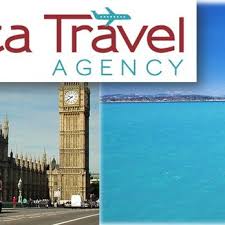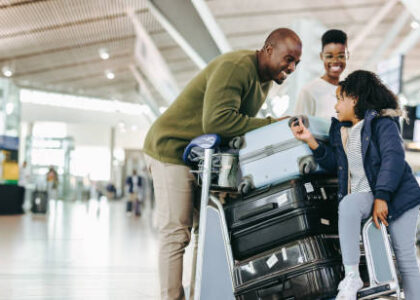Travel Restrictions: Navigating the New Normal
In light of the ongoing global pandemic, travel restrictions have become a common feature in our daily lives. From border closures to quarantine requirements, governments around the world have implemented various measures to curb the spread of COVID-19 and protect public health.
These travel restrictions have significantly impacted the tourism industry, leading to canceled trips, closed borders, and uncertainty for travelers. Navigating this new normal requires careful planning, flexibility, and a thorough understanding of the latest guidelines and regulations.
Types of Travel Restrictions
Travel restrictions can take many forms, including:
- Border Closures: Some countries have closed their borders to foreign travelers or imposed strict entry requirements.
- Quarantine Mandates: Travelers may be required to undergo quarantine upon arrival or show proof of a negative COVID-19 test.
- Travel Bans: Certain destinations may have banned travel from specific countries or regions with high infection rates.
- Limited Transportation: Reduced flight schedules and limited public transportation options can make travel more challenging.
Tips for Navigating Travel Restrictions
To navigate travel restrictions effectively, consider the following tips:
- Stay Informed: Regularly check official government websites and travel advisories for up-to-date information on restrictions and requirements.
- Plan Ahead: Research your destination’s entry requirements, including visa regulations, testing protocols, and quarantine mandates.
- Flexibility is Key: Be prepared for last-minute changes or cancellations due to evolving circumstances.
- Travel Insurance: Consider purchasing comprehensive travel insurance that covers trip cancellations and medical expenses related to COVID-19.
In conclusion, while travel restrictions may present challenges for adventurers and globetrotters alike, they are essential for safeguarding public health during these unprecedented times. By staying informed, planning ahead, and remaining flexible in your travel plans, you can navigate these restrictions with confidence and continue exploring the world responsibly.
Frequently Asked Questions About Current Travel Restrictions and COVID-19 Guidelines
- What is the current CDC COVID-19 isolation guidance?
- What are the new rules for traveling?
- What are the US requirements for international travel?
- What is the meaning of travel restrictions?
- Can I leave my house if I have tested positive for COVID-19?
- Do you still need to be vaccinated to travel to the USA?
- What does the CDC say about COVID-19 quarantine?
- Do I need to test negative for COVID-19 before travelling to the US?
What is the current CDC COVID-19 isolation guidance?
The current CDC COVID-19 isolation guidance recommends that individuals who have tested positive for COVID-19 should isolate themselves for a period of at least 10 days from the onset of symptoms or from the date of their positive test result if they are asymptomatic. During isolation, individuals should stay home, separate themselves from others in their household, monitor their symptoms, and follow any additional recommendations provided by healthcare professionals. This guidance aims to prevent the spread of the virus and protect the health and well-being of both individuals and the community at large.
What are the new rules for traveling?
The new rules for traveling amid the current global situation involve a range of measures aimed at ensuring the safety and well-being of travelers and the communities they visit. These rules may include mandatory mask-wearing in airports and on flights, health screenings such as temperature checks, COVID-19 testing requirements before and after travel, quarantine protocols upon arrival at certain destinations, and adherence to social distancing guidelines. It is crucial for travelers to stay updated on the latest regulations and guidelines set forth by authorities to navigate these new rules effectively and contribute to a safer travel experience for all.
What are the US requirements for international travel?
When it comes to international travel from the US, there are specific requirements that travelers need to be aware of. The US has implemented various measures to manage the entry of foreign visitors, including COVID-19-related restrictions. These requirements may include providing proof of a negative COVID-19 test before departure, completing health declaration forms, and adhering to quarantine or testing protocols upon arrival in the destination country. It is crucial for travelers to stay informed about the latest guidelines issued by both the US government and the countries they plan to visit to ensure a smooth and compliant travel experience.
What is the meaning of travel restrictions?
Travel restrictions refer to regulations and limitations imposed by governments or authorities to control the movement of people between regions, countries, or areas. These restrictions can take various forms, such as border closures, quarantine mandates, travel bans, and limitations on transportation services. The primary purpose of travel restrictions is to prevent the spread of diseases, ensure public safety, and manage potential health risks associated with travel. Understanding and complying with travel restrictions is crucial for travelers to navigate their journeys effectively and responsibly in accordance with the prevailing regulations.
Can I leave my house if I have tested positive for COVID-19?
If you have tested positive for COVID-19, it is crucial to follow the guidelines set forth by health authorities to prevent the spread of the virus. In most cases, individuals who have tested positive are advised to self-isolate at home and avoid leaving their house except for medical emergencies or as directed by healthcare professionals. Leaving your house while infected can increase the risk of transmission to others and may violate quarantine regulations in place to protect public health. It is important to prioritize the well-being of yourself and those around you by adhering to isolation protocols until it is safe to resume normal activities.
Do you still need to be vaccinated to travel to the USA?
In response to the frequently asked question about travel restrictions to the USA, it is important to note that as of the current guidelines, travelers are not required to be vaccinated to enter the United States. However, there are other entry requirements in place, such as providing proof of a negative COVID-19 test result taken within a specific timeframe before departure. It is advisable for travelers to stay updated on the latest regulations and guidelines set by the U.S. government and airlines to ensure a smooth and hassle-free travel experience.
What does the CDC say about COVID-19 quarantine?
The Centers for Disease Control and Prevention (CDC) recommends that individuals who have been exposed to COVID-19 or have tested positive for the virus should quarantine to prevent further spread. The CDC advises a quarantine period of 14 days, during which individuals should stay home, monitor their symptoms, and avoid contact with others. This precautionary measure is crucial in reducing the risk of transmission and protecting the health of both the individual and the community at large. It is important to follow the CDC guidelines closely to help control the spread of COVID-19 and ensure a safe and healthy environment for all.
Do I need to test negative for COVID-19 before travelling to the US?
Travelers planning to visit the US should be aware of the current travel restrictions in place due to the COVID-19 pandemic. As of the latest guidelines, individuals traveling to the US are required to provide proof of a negative COVID-19 test taken within a specified timeframe before their departure. This testing requirement aims to reduce the spread of the virus and protect public health. It is essential for travelers to stay informed about these regulations and ensure compliance with testing protocols before embarking on their journey to the United States.





